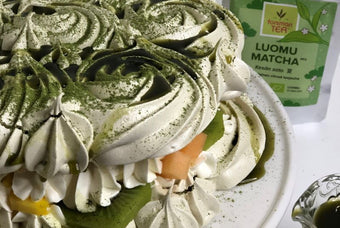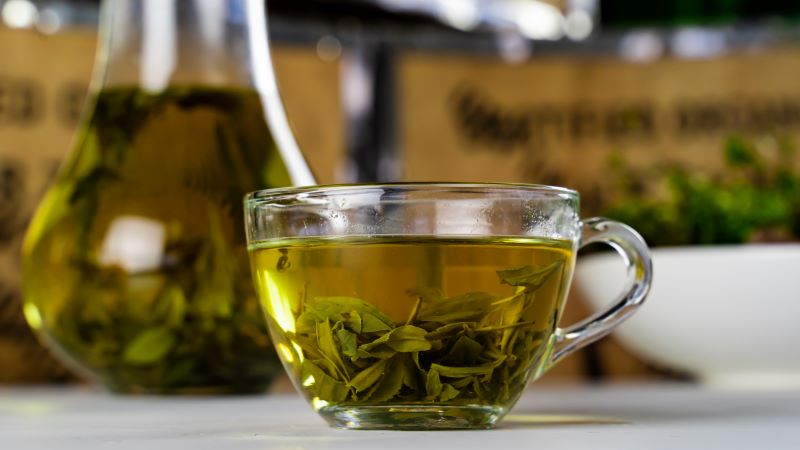Tea and health
The health effects of tea have been known for a long time
In Chinese medicine, tea has been known for centuries for its positive health effects. Tea has been used for a long time in the so-called as a traditional medicine and it has been used to treat all kinds of ailments, such as headaches or depression. Later, the health effects of tea have also been shown in many scientific studies.
Tea contains a lot of flavonoids
Tea contains plenty of flavonoids, which are powerful antioxidants. Antioxidants protect the body from attacks by free radicals and are needed for the body's defense mechanisms. Antioxidants have disease-fighting properties. If a person's antioxidant protection is weak, cells are easily damaged and become ill. The most significant antioxidant in green tea is epicallocatechin gallate (EGCG), which is about 40% of the dry weight of green tea.
In Asia (Japan 90%) and many European countries, tea is an important source of flavonoids, while in Finland onion and apple (64%) are important sources of flavonoids. Studies have shown that three cups of tea contain the same amount of antioxidants as six apples.

"Tea is healthy"
Tea lowers cholesterol
Positive results have been obtained in studies on the effects of tea on cholesterol levels and blood pressure. For example, one study found that consuming five teacups daily for three weeks lowered blood cholesterol levels, and especially bad LDL cholesterol, in subjects whose cholesterol readings were initially mildly elevated. (1) Specially fermented Pu-Erh tea is suitable for lowering cholesterol.
In the experiment, subjects first consumed five servings of black tea daily for three weeks. For the next three weeks, they drank tea-flavored water. During the third period, they were served tea-flavored water with the same amount of caffeine added as black tea. During the period when the test subjects drank real tea, it was found that the subjects' cholesterol values were lowered by 6-10%. The study took into account the test subjects' other diet. Based on the results, the researchers concluded that by drinking black tea and following a moderate low-fat and low-cholesterol diet, total cholesterol, particularly bad LDL cholesterol, and thus possibly reduce risk of heart disease.
Drinking tea reduces the risk of dementia
According to new research, drinking tea reduces the risk of developing memory diseases such as dementia and Alzheimer's disease. Among other things, a recent study by the National University of Singapore found that regular tea drinking reduces the likelihood of developing memory disorders. (2)
The study found that regular tea drinking halved the risk of dementia in the elderly (over 55). In addition, drinking tea reduced the risk of developing Alzheimer's disease by up to 86 percent for those who carry the ApoE4 gene that predisposes to Alzheimer's disease. (2)
The study found no differences between different tea qualities, as long as the tea was brewed from tea leaves. So according to the research black , green and oolong are all equally good at reducing the risk of memory disorders. It is not yet known which ingredients in tea protect the brain from degeneration. However, it is likely that the positive effects of tea are related to tea's antioxidants and amino acids (catechins and theanine). (2)
How can I use all the benefits of tea?
In addition to the fact that tea brewed in 100 degree water is bitter, several positive benefits of tea are also lost during "boiling". Naturally, brewing tea in water that is too cool often does not do justice to the taste of the tea.
When you brew tea at the right temperature ( see brewing tea ), you get not only a wonderful taste but also all the health effects of tea in your cup and thus make the tea experience both a wonderful taste pleasure and promote your health at the same time.

Moderation in everything, including tea
Tea contains caffeine, so tea should be consumed in moderation to avoid the negative effects of caffeine. Symptoms may appear if more than 5 cups of tea are consumed per day. Adverse effects caused by caffeine can include e.g. headache, nervousness, sleep difficulties, digestion problems and arrhythmias. Children in particular should avoid excessive caffeine intake. People who are sensitive to caffeine should prefer low-caffeine teas, such as oolong(4) or needle tea. However, there are also completely caffeine-free alternatives to tea, such as Rooibos , Honeybush and Hibiscus .
Tea and pregnancy
Tea can also be enjoyed in moderation during pregnancy and breastfeeding. The only negative side of tea during pregnancy is its caffeine. That's why tea should be brewed for a slightly shorter time during pregnancy, and when dosing leaves, it's better to put too few leaves rather than too much, so that the caffeine content remains as low as possible. Of course, the caffeine content of tea is relatively low anyway, so you shouldn't be too afraid of it. Low-caffeine teas include, for example , Knuppineulatet and white teas. The use of herbal teas classified as natural products is not recommended during pregnancy and breastfeeding. (3)
1. Terve.fi. Do you drink green tea? These are its pros and cons. http://www.terve.fi/ravinto/81321-juotko-vihreaa-teeta-nama-ovat-sen-hyodyt-ja-haitat
2. Helsingin Sanomat. 2017. Research: Drinking tea prevents dementia and Alzheimer's. http://www.hs.fi/tiede/art-2000005134596.html
3. HOUSE. Pregnancy, Coffee and tea. http://www.hus.fi/sairanhoito/sairanhoitopalvelut/teratologinen-tietopalvelu/ravintojavitaminit/Sivut/Kahvi-ja-tee.aspx
4. Be careful with your evening coffee or tea - look at the caffeine levels of different drinks. https://www.is.fi/ruokala/ahkantohaista/art-2000000879485.html







